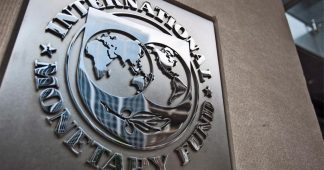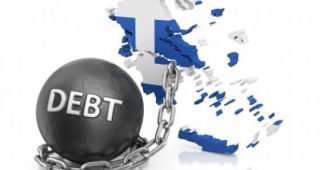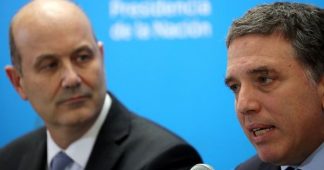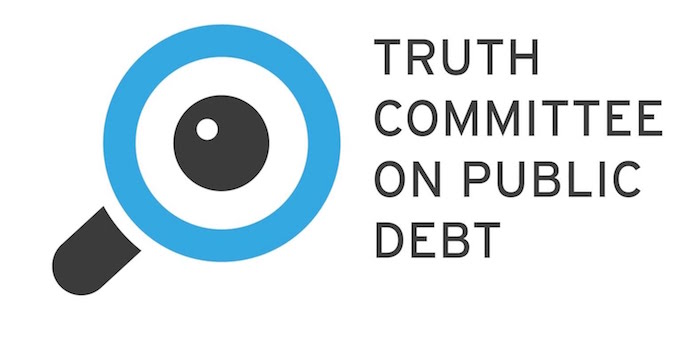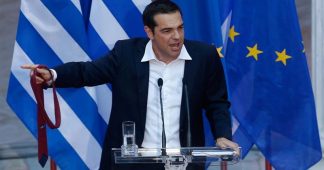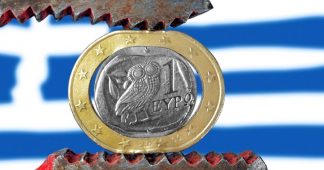by Eric Toussaint , Sergio Ferrari
27 June 2018
1. The vicious circle of illegitimate debt grapples the Argentine people once again
2. IMF’s $ 50 billion loan surpasses Greece’s previous record
Sergio Ferrari from Berne, Switzerland interviewed Eric Toussaint, international debt specialist
After more than a decade of Argentina’s official “distance” from the International Monetary Fund (IMF), Mauricio Macri’s government has just knocked on the doors of the world’s financial police. The $ 50 billion credit granted by the organization during the first week of June sets an international record and will directly impact the economic and social situation of this South American country. Eric Toussaint, Belgian historian and economist, an eminent specialist in this field and spokesperson for the Committee for the Abolition of Illegitimate Debt (CADTM), based in Brussels, pointed this out. Interview follows.
Q: Why did the Argentine government turn to the IMF, in full view of Argentina’s relations with this international organization in the late 1990s and their dire political consequences? Is the financial top brass of the Macri team despairing?
Eric Toussaint (ET): Since the Mauricio Macri government assumed office in December 2015, its policies have led to a critical situation. Sharp reduction in export taxes have brought down tax revenues, the debt servicing expenditure has been significantly increased (100% higher in 2018 than in 2017). The country is running out of dollars. Currency reserves fell by $ 8 billion earlier this year. Macri needs this IMF loan to continue debt servicing. Private international lenders require such a loan as a prerequisite for continued credit to Argentina. A very large chunk of the IMF loan will be used directly to repay foreign creditors in dollars.
Q: If we look at the Argentine history of the 1990s, this seems to be a scheme of playing with fire…
ET: Yes, of course. But I would like to further explore the background of this appeal to the IMF…
Q- Please go ahead!
ET: This shows that the government’s policy is an abject failure: with a peso that devalued fast; with the interest rate set at a high 40% by the Argentine Republic’s Central Bank; with the $ 8 billion reduction in international reserves that keep declining. And with a debt service that has increased by 100% compared to 2017. Faced with a balance sheet of such a nature, undoubtedly it is a total failure. Macri claimed that a high growth level and a viable debt would be ensured by paying the debt – between end-2015 and early-2016 – and by compensating the vulture funds, in keeping with Judge Thomas Griesa’s verdict. He knelt before the vulture funds (see: http://www.cadtm.org/Reject-the-Imminent-Agreement-with). But the facts confirm that this plan did not work. Debt rose at a whirling pace and it’s startling to see how fast it snowballed. As a result, it became impossible to convince the creditors that Argentina could repay its debt in the future. That’s why Macri is asking for this $ 50 billion credit. We must remember that when Greece received $ 30 billion from the IMF in 2010 in the backdrop of a dramatic situation, it was a record amount!
Q: Some analysts say that President Macri is trying to breathe in some fresh air with the help of this loan, before commanding a comfortable position in the October 2019 elections.
ET: I would not like to engage in farfetched political speculations. I prefer facts. I have read the contents of the agreement signed with the IMF and it has imposed a severe reduction in general social benefits and wages of the public servants. Public investment will be almost wiped out and it will lead to an economic depression. Debt repayment will increase and the IMF charges high interest rates. The government will impose taxes with elevated rates on the public to repay the debt, while continuing to hand out fiscal perks to the capitalists. The government will encourage the export of the maximum number of agricultural products and raw materials to the global market by reinforcing the extractivist-exporting model. IMF’s policy will lead the country to an economic and social crisis even more serious than what it suffered before this loan was sanctioned. Let’s go back to your question. It is very likely that, politically, Macri will claim that what he is doing is not his project, but what the IMF demands from him.
Q: This brings us back to a not-so-distant past and I would like to highlight that: the decade of indebtedness and the IMF’s role in the 1990s that eventually led to the social outburst of 2001. Can history repeat itself without tragedy?
ET: History is repeating itself in a country that is a serial debt payer. It started with the illegitimate and odious debt inherited from the military dictatorship of the 1970s. IMF’s support was crucial for this dictatorship to continue until the early 1980s. The vicious circle of illegitimate debts persisted during the 1990s with President Carlos Menem followed by Fernando De la Rúa. Their allegiance to the IMF’s recommendations led to the great social crisis of late 2001. President Rodríguez Saá, in his few days or Presidency at end-2001, announced the suspension of debt repayment to allay popular anger. The debt was restructured in 2005, then re-negotiated with creditors who had not participated before. It caused a crisis in the government and evoked sharp criticism from the people (see the section on Argentina here http://www.cadtm.org/Restructuration-Audit-Suspension,11723). Former minister Roberto Lavagna, who had negotiated the 2005 restructuring, objected to negotiations with outsider creditors. The Argentine authorities never wanted to do what Ecuador did in 2007-2008: to carry out a debt audit with citizens’ participation, which could have defined the odious and illegitimate part of the debt (see: http://www.cadtm.org/Video-The-Ecuador-debt-audit-a and http://www.cadtm.org/Vulture-funds-are-the-vanguard). This, along with the inconsistency of the Cristina Fernandez government’s national sovereignty discourse, frustrated people. This partly explains Macri’s electoral victory in 2015.
Q: A course over several decades where illegitimate debts condition government policies without ever finding structural solutions…
ET: Yes. And that led today to this new mega-loan from the IMF. From now on, it can be included in the category of odious and illegitimate debts. An odious debt is a debt contracted against the people’s interests, and the creditors know that it is illegitimate. Evidently a new illegitimate and odious debt is taking shape.
Q: What about future prospects?
ET: I have already spoken about the deteriorating economic and social crisis. I hope for a strong popular reaction in the coming months. I also hope that the popular forces will not take too long to consolidate their strength to oppose even more vigorously the Macri government and the pressures of the IMF and other international creditors.
Translated by Suchandra De Sarkar
